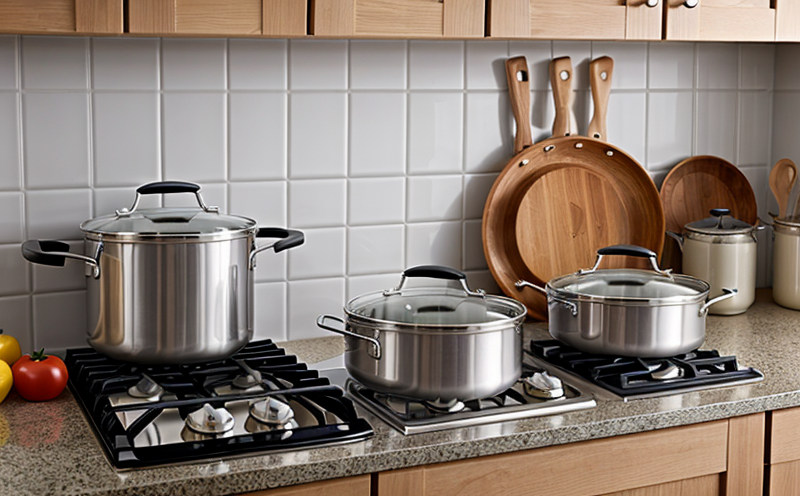Chemical Migration Testing in Cookware Packaging
In today's fast-paced world, consumer demand for safe and sustainable products is at an all-time high. Kitchenware and cookware packaging play a crucial role in ensuring that the products we use every day are not only functional but also free from harmful chemicals. Chemical migration testing is essential to guarantee the safety of these materials, especially when they come into contact with food or liquids.
Chemical migration occurs when substances such as plasticizers, solvents, or other additives leach out of packaging materials and into the contents. This can lead to contamination of food products, posing health risks to consumers. Regulatory agencies worldwide have implemented stringent standards to control such migrations, ensuring that only safe materials are used in kitchenware and cookware packaging.
Our comprehensive chemical migration testing service employs advanced analytical techniques like Gas Chromatography-Mass Spectrometry (GC-MS), Liquid Chromatography-Mass Spectrometry (LC-MS), and Fourier Transform Infrared Spectroscopy (FTIR) to detect even trace amounts of potentially harmful substances. This ensures that the packaging used in cookware complies with international standards such as ISO 10343, ASTM F2506, and EN 1049.
The testing process begins with thorough sample preparation, which involves cleaning and conditioning the packaging material to simulate real-world conditions. Once prepared, the samples are analyzed using state-of-the-art equipment that can identify over 500 different chemical compounds commonly found in plastics and other materials used in kitchenware packaging.
Our team of experienced chemists and analysts ensures that all tests are conducted according to recognized standards, providing accurate and reliable results. The testing process is designed to highlight any potential risks associated with the use of specific materials, allowing manufacturers to make informed decisions about their product design and safety features.
By partnering with us for chemical migration testing in cookware packaging, you can rest assured that your products meet strict regulatory requirements and exceed consumer expectations. Our services are tailored to address the unique challenges faced by the kitchenware and cookware sector, ensuring that every aspect of your product is safe and reliable.
Understanding the importance of chemical migration testing in cookware packaging is crucial for maintaining a competitive edge in today's market. By adhering to strict safety standards, you can build trust with your customers and differentiate yourself from competitors who may not prioritize these critical tests.
Why It Matters
The importance of chemical migration testing cannot be overstated. Contaminants such as Bisphenol A (BPA), phthalates, and other harmful substances can have severe health implications if they migrate into food or drinks from packaging materials. These contaminants may lead to various health issues including reproductive disorders, developmental problems, and even cancer.
Regulatory bodies around the globe are increasingly focusing on reducing exposure to such chemicals by implementing stricter regulations. For instance, the European Union's REACH (Registration, Evaluation, Authorization, and Restriction of Chemicals) initiative aims to identify the most dangerous substances in products and reduce human and environmental exposure.
The U.S. Food and Drug Administration (FDA) also enforces strict rules regarding food contact materials, ensuring that any substance used does not migrate into food at levels harmful to health. Adhering to these regulations is essential for businesses operating within the kitchenware and cookware sector.
Benefits
- Informed Decision-Making: Our testing provides valuable insights into the safety of your packaging materials, helping you make informed decisions about material selection and design.
- Compliance Assurance: By adhering to international standards like ISO 10343 and ASTM F2506, we ensure that your products meet regulatory requirements, reducing the risk of recalls or legal issues.
- Enhanced Consumer Trust: Demonstrating a commitment to safety and quality enhances consumer confidence in your brand. This can lead to increased loyalty and repeat business.
- Risk Mitigation: Identifying potential risks early in the development process allows you to address them proactively, minimizing costly mistakes further down the line.
Industry Applications
The kitchenware and cookware sector relies heavily on packaging materials that are both functional and safe. Our chemical migration testing service is applicable to a wide range of products, including:
- Cookware sets (including pots, pans, and bakeware)
- Plastic utensils and containers
- Storage solutions for food items
- Bottles and jars used for condiments and sauces





